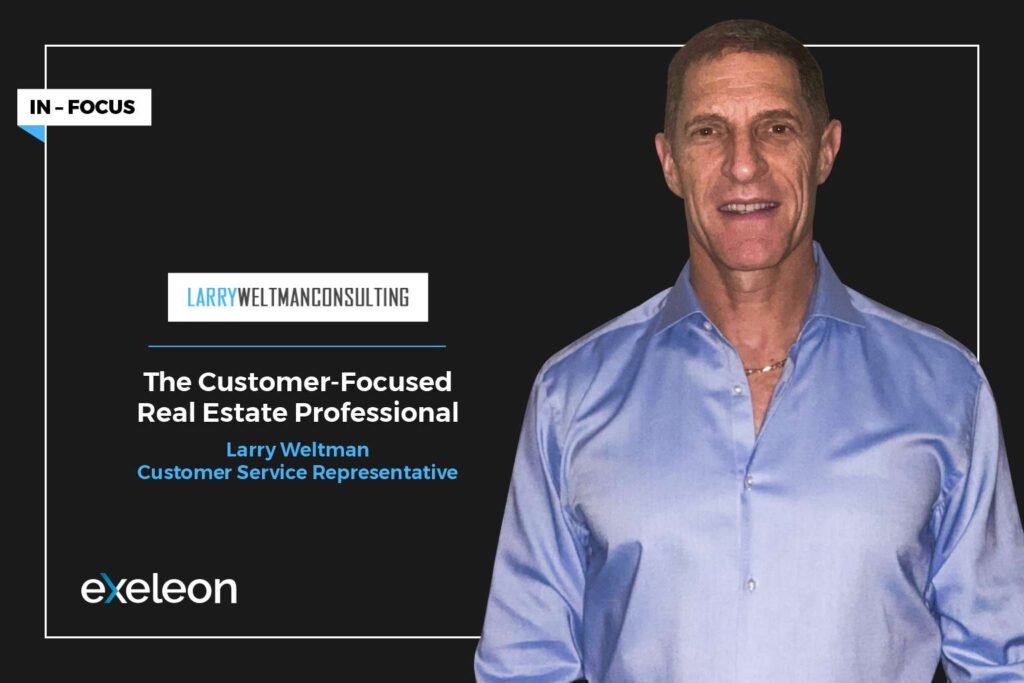Among real estate agents in the Greater Toronto Area, Larry Weltman is known as a mentor and an industry thought leader. But his business cards proudly carry a modest title: Customer Service Representative.
That is because Larry Weltman credits his career-long focus on customer service for his business success, which began with training in accounting and led to the founding of Weltman Consulting, a resource for real estate agents and brokers in southern Ontario.
Recently Larry Weltman discussed the power of client-centered business strategies, in real estate and beyond.
Q: What prompted you to start your own consulting firm?
Larry Weltman: After decades of work in the GTA and southern Ontario, I saw a major shift coming in the real estate sales market, changes that were going to be transformative for the industry, and especially agents and brokers.
There has been a rise in independent brokers who take on a majority of the business expenses themselves. Even as increasing numbers of brokers have set out on their own, commissions have decreased significantly, as a result of both competition and the digital power that buyers and sellers have acquired through online platforms. Meanwhile, the compliance requirements keep piling up for every independent business.
Weltman Consulting addresses these issues and fills these needs. Through the firm, I provide realtors and real estate brokerages with consulting services to ensure they are equipped with the resources needed to run a successful real estate sales business in Toronto, the GTA, major Ontario markets and often nationwide.
Amid downward pressure on percentages and payments, the previous business model for real estate brokers was unsustainable. In this new environment, independent professionals need a trusted partner who can help manage and grow their business, add innovation and efficiency, while identifying rewarding opportunities.
Q: Why is customer service so central to your business, and your business philosophy?
Larry Weltman: It’s certainly true that many companies see customer service as a low-tier priority, even an afterthought. We can see that perspective all around us, whenever we line up for a product or service, whether it be a retail, food and hospitality or commercial business.
But the reality is that customer service should be the fundamental building block of any business. I like to use an analogy from the classic Mad Men TV series. In one memorable episode, the fictional ad man Don Draper schooled a copywriter: “You’re not an artist. You solve problems.” My take is similar. You may think you are selling real estate, running an office, managing properties, investing in markets, but that’s not your real job. You are a customer-focused professional, or should be. You are a customer service representative. I proudly use that term, because I know that those who embrace it are true professionals, and will ultimately be successful in whatever they do.
When you are focused on clients, you also gain greater understanding of their needs and how the overall market is changing. So it’s a connection that benefits both sides of the conversation. Every business is at heart client service-centered; it’s just a question of whether they know it or not.
Q: Beyond a focus on customer service, what advice do you have for someone starting out in real estate today?
Larry Weltman: My first piece of advice would be: Treat real estate as a serious business rather than an investment game. Early on, develop a business plan that covers your marketing, advertising and financial budgets. And don’t consider your university degree the end of your educational journey. Keep learning, keep asking questions and acquiring the skills you will need over a long career. These skills will be what keep your business thriving while the industry changes around you, as it inevitably will — and always does.
Beyond staying up-to-date on new developments in real estate, I believe a real estate professional has a responsibility to share practical knowledge with his clients, so that they make informed decisions that will allow them to understand the complexities of the market and profit from opportunities.
This is one of the reasons that I regularly author articles and give interviews related to the real estate industry. When I write a column or prepare for an interview, I always learn more. And by writing and commenting, I am able to share knowledge with a broad audience, particularly with young professionals who are starting out in their own independent real estate practices.










